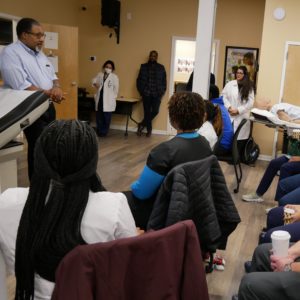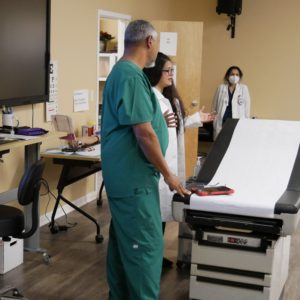Many students studying at the doctoral or post graduate level demonstrate an academic proficiency which has contributed to their continued success and academic performance. Students develop and refine personalized study habits to meet the challenge of retaining new material.
Beneath the stacks of index cards and dry highlighter pens are pieces of core foundational knowledge and tools to be periodically revisited. Just like complex medical terms all derive from Latin root words, modern academic success techniques derive from time tested fundamentals.
Here are three to ponder before the big exam:
1. Repetition works. That’s right repetition works. Repetition does what? Whether it’s verbally aloud so people wonder who that crazy medical student is talking to, or written down; repetition facilitates the transfer of knowledge to both your short, and long term memory. According to a 2016 study children were are able to learn novel words for objects when they were repeated in successive sentences, and through the application of consistent repetition exercises (Repetition across successive sentences facilitates young children’s word learning. Schwab, Jessica F.; Lew-Williams, Casey
Developmental Psychology, Vol 52(6), Jun 2016, 879-886). Remember when you first heard the word Pseudopseudohypoparathyroidism? We bet you do.
2. Keep a list. As medical students you are most likely balancing a demanding academic and social workload in a small apartment, behind a wall of textbooks, over a romantic dinner for one of day old pizza. The culmination of study material, test dates, and assignment deadlines promotes the anxiety response prompting us to action. When these things are not organized in a manageable format we can become overwhelmed or miss important deadlines further compounding our stress. Psychiatrist Carrie Barron wrote guess what…a list of why lists are important. Benefits of lists range from determining clear courses of action, selection and prioritizing of tasks, to combating avoidance (How Making Lists Can Quell Anxiety and Breed Creativity, Psychology Today; https://www.psychologytoday.com/blog/the-creativity-cure/201403/how-making-lists-can-quell-anxiety-and-breed-creativity).
3. Show Up. Yes the most important technique for academic success is the most obvious, but also one of the least applied. Sure it’s tough to roll out of bed after an exciting all night microbiology study session, but not showing up to class on-time means that you will miss the valuable material provided by the instructor. Downloading lecture slides does not include any valuable question and answer exchanges where application of concepts are discussed, nor does it allow you to present your own questions to further your understanding of material and facilitate engaging discussion. A top characteristic listed by employers as highly sought in candidates is dependability (Fallon, Nicole. The personality traits that will get you hired. Forbes, 2014; http://www.businessnewsdaily.com/7950-personality-traits-hired.html). An employer, just like an instructor, or Residency Director expects that you will be present and do what is required. When you smiling, punctual face becomes a regular fixture in class or on a clinical site it is a testament to your dependability which may make coveted letters of recommendation easy to write.
Before nailing the door to your study space shut, or juicing your textbooks for consumption, remember that all new and novel study skills stem from a few simple and proven techniques that when applied, will significantly improve your time and material management. A well prepared student attends classes and clerkships regularly, lists and prioritizes their goals, and repeats the major muscles of the back including origins and REPLACEions before going to sleep.



